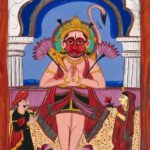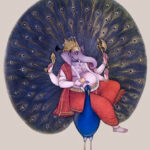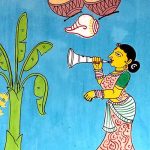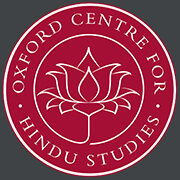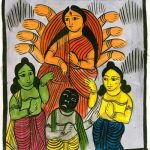Women in the Hindu World
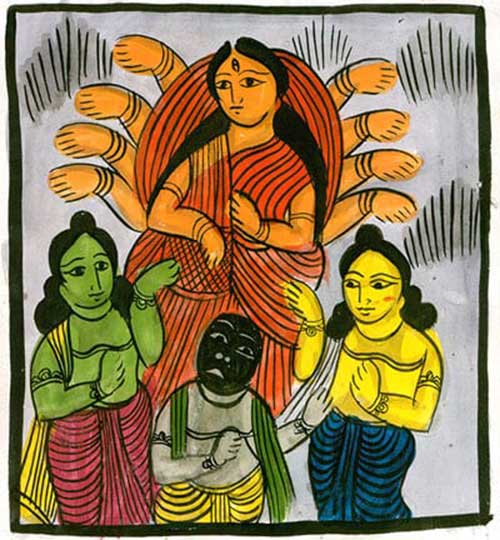
In this course, we mark the evolving conception of women in Hinduism, their religious roles, and their social status. We begin with the earliest stages of Hindu society and move to the present. This course looks at the overall representation of women in Hinduism – from goddess to devotee.
This course is an opportunity to examine the role of women in Hinduism in great detail and with tuition from experts in the area. You’ll have the chance to explore whether there is a mismatch between the central role of the feminine as the source of cosmic power and the actual role of women in Hindu society.
In Women in Hinduism, we will see how religious principles can turn into social and political rules and conventions. You’ll become familiar with Hindu goddesses, and will also discover the opportunities that exist within Hinduism for women to achieve self-determination – socially and spiritually.
Start Date: 18 January 2026
Course Duration: Seven Weeks
202 pages
On-Demand Video
The main video component of your course. On-demand means you can watch at the time that suits you.
5hr 1min
Community Discussions
These free Zoom sessions are not part of your main course materials. They are led by OCHS-affiliated scholars and open to students enrolled in any course.
Explore other areas of Hindu studies! Meet tutors and students from other courses!
Monday, 26 January, 12noon
Tuesday, 3 February, 2pm
Thursday, 12 February, 3pm
Saturday, 21 February, 5pm
Sunday, 1 March, 6pm
These are all UK times. Recordings are available for any sessions you miss
Session 1: Women in Hinduism – Divinity and Femininity
Hindu religious thought has always been deeply concerned with the idea of femininity. In this session we discover the origins of that idea and its development. Hindu beliefs and practices have located the feminine both in the material human world and in the realm of the spirit. How much force does that tradition still exert on Hindu culture today? This is an intriguing question that leads to emotionally charged positions among Hindus and non-Hindus alike. We will explore the traditions of Goddess worship in sacred texts, beginning with the goddesses revered in Vedic hymns. We then look at the worship of the Goddess as the single Supreme Deity before considering how (or if) devotion to the Great Goddess translates into respect for women generally.
Session 2: Hindu Women and Sacred Knowledge
Hindu society has traditionally regarded knowledge, especially sacred knowledge, as the source of prestige and power. As women’s access to knowledge has varied, so has their social and religious position – from the Vedic period’s open opportunities through to insurmountable obstacles in later times through to increased access to education in the 19th century. But even in medieval and early modern times, when women were held within the narrowest bounds of domesticity, there were many Hindu women revered for their religious insights and erudition. What do Vedic sources tell us of the lives and education of women in the early period and what do later texts reveal about women’s access to spiritual education? What is the path from the post-Vedic era to the onset of modernity?
Session 3: Regulating Women’s Lives – Scriptures and Injunctions
Women’s lives in pre-modern Hindu society became increasingly confined by rules for every aspect of life. These were set down by priests and religious scholars, based on arbitrary notions of women’s nature that led to the erosion of women’s freedom. Earlier freedoms were replaced by strict control of women’s activities within the home, away from public life. To find out how this happened, we will look at the injunctions and opinions of Hindu books of conduct that aimed to regulate women’s lives and consider how far they prevailed in reality. We will also see how the culture of women’s dependency has fared in modern Hindu society, including diasporic Hindu communities.
Session 4: A Room of Her Own – Women’s Writings
Enquiry and declaration of belief are at the heart of Hindu religious life, to which women’s contributions through Hinduism’s long history have been complex and rich. Beginning in the Vedic age, women expressed in poetry and song their philosophical perceptions and their quest for the divine. In doing so, women often flouted social rules, enriching Hindu spirituality while asserting the independence of faith. In this session we examine women’s contribution to Hindu religious writing, noting in particular the devotional poetry composed by women. We see the distinctively feminine contribution to the religious life of India and beyond.
Session 5: Women at Worship
The home is the primary location of worship for many Hindus, especially Hindu women. Responsible for the well-being of their families, women turn to the divine to obtain blessings for these families and for others. They perform traditionally prescribed rituals and home ceremonies designed to please particular deities. Differing as they do from Vedic and Brahminical practices, these rituals are a living part of Hindu religious life. Although males are by no means excluded from these devotional tasks, the main performers are almost always women. In this session we learn how these rituals are performed and how they affirm women’s sense of their connection to the sacred. The outsider’s experience of Hinduism often relates to temples and visible rituals, but this session shows how home rituals are equally important and is where women come to the fore as religious leaders and practitioners.
Session 6: Women, Art, and Religion
Sacred imagery is woven through the arts in the Hindu cultural world. It is an enterprise that is as social as it is devotional. Women’s contribution to the arts is especially enriching. In this session we look at the role of women in musical composition and performance, in visual arts, and in traditional dance.
Session 7: Arriving at Modernity
In recent times, the liberalisation of Hindu social culture has alleviated gender prejudice, and Hindu women’s devotion to their faith has increasingly been recognised as one of the root causes of Hinduism’s longevity. Hindu women have mostly been deeply observant of religious rites, even orthodox in their practice. With modern education and secularism, some women have questioned Hinduism’s principles and practices while holding on to the essential spiritual positions on which belief and practice are founded. In this session we discuss the changes wrought by the onset of liberalism and the demand for universal education across the gender divide. Such changes have led to a revision of the consciousness of Hindu women in relation to their religious identity, crossing the boundaries between religious, social and political issues.
Associated Courses
Your Tutor

Gitte Poulsen
Gitte has a Masters in Religious Studies from Aarhus University, Denmark but has completed most of her studies in Varanasi, India, and as a visiting student at the Oxford Centre for Hindu Studies. Gitte’s focus is on Yoga, Tantra, and Sanskrit. She is also a dedicated practitioner of āsana and prāṇāyāma. She manages the OCHS Kathmandu Office where she oversees the daily operation and focuses on Nepali and Newari language as well as Śākta traditions among the Newar community of The Kathmandu Valley.
